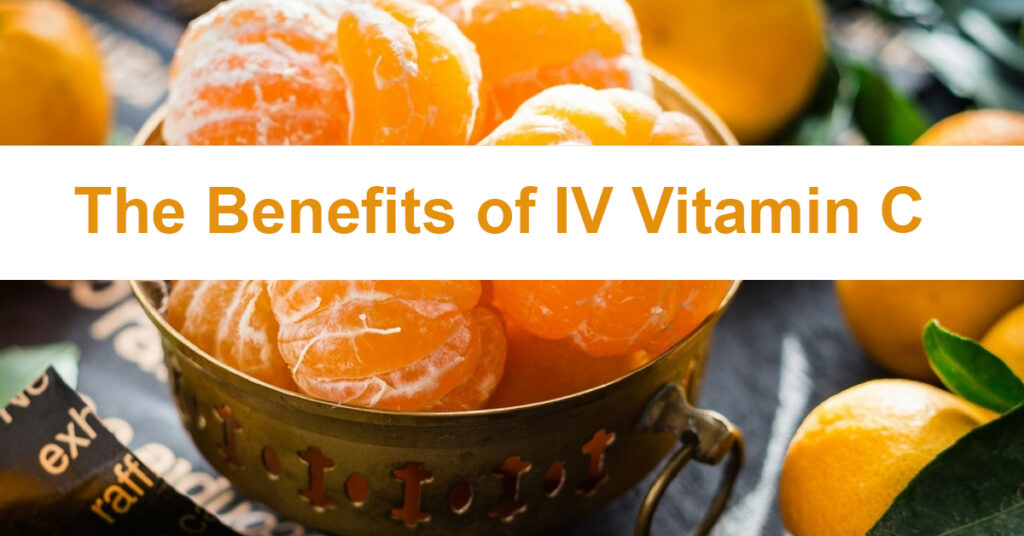
How Is High-Dose Vitamin C Taken?

Vitamin C may be given by intravenous (IV) infusion or taken by mouth, although much higher blood levels are reached when given intravenously.
What is Vitamin C?
Vitamin C (also called L-ascorbic acid or ascorbate) is a nutrient that humans must get from food or dietary supplements since it cannot be made in the body. Vitamin C is an antioxidant and helps prevent oxidative stress. It also works with enzymes to play a key role in making collagen.
When taken by intravenous (IV) infusion, vitamin C can reach much higher levels in the blood than when it is taken by mouth. Studies suggest that these higher levels of vitamin C may cause the death of cancer cells in the laboratory.
A severe deficiency (lack) of vitamin C in the diet causes scurvy, a disease with symptoms of extreme weakness, lethargy, easy bruising, and bleeding. The lack of vitamin C in patients with scurvy makes collagen thinner in texture; when vitamin C is given, collagen becomes thicker again.
- Vitamin C is a nutrient found in food and dietary supplements. It is an antioxidant and also plays a key role in making collagen.
- High-dose vitamin C may be given by intravenous (IV) infusion (through a vein into the bloodstream) or orally (taken by mouth). When taken by intravenous infusion, vitamin C can reach much higher levels in the blood than when the same amount is taken by mouth.
- High-dose vitamin C has been studied as a treatment for patients with cancer since the 1970s.
- Laboratory studies have shown that high doses of vitamin C may slow the growth and spread of prostate, pancreatic, liver, colon, and other types of cancer cells.
- Some laboratory and animal studies have shown that combining vitamin C with anticancer therapies may be helpful, while other studies have shown that certain forms of vitamin C may make chemotherapy less effective.
- Animal studies have shown that high-dose vitamin C treatment blocks tumor growth in certain models of pancreatic, liver, prostate, and ovarian cancers, sarcoma, and malignant mesothelioma.
- Some human studies of high-dose IV vitamin C in patients with cancer have shown improved quality of life, as well as improvements in physical, mental, and emotional functions, symptoms of fatigue, nausea and vomiting, pain, and appetite loss.
- Intravenous high-dose ascorbic acid has caused very few side effects in clinical trials.

Blog